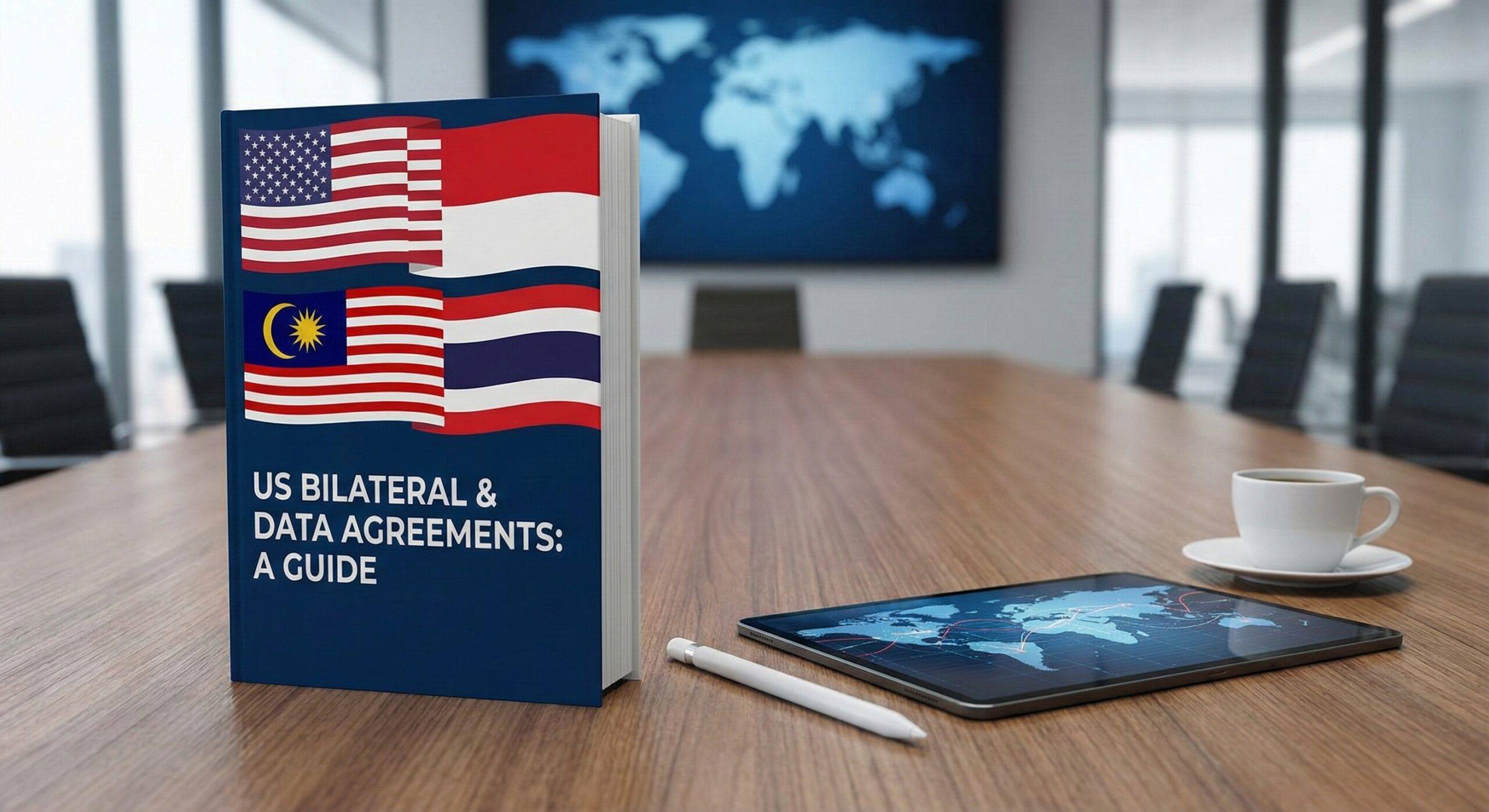This content is protected against AI scraping.
Introduction
The recent U.S. signing of bilateral trade and data agreements with Indonesia, Malaysia, and Thailand represents a major shift in international data governance and economic relations for organizations operating across the Asia-Pacific region. These deals not only improve market access and lower trade barriers but also secure commitments for the free flow of personal data to the United States—impacting compliance, privacy protection, and business strategy for entities subject to APAC data regimes.
Key Provisions of the New Agreements
Each agreement establishes legal frameworks for the cross-border movement of personal data, with Indonesia’s arrangement notably aligning with that country’s Personal Data Protection Law (PDPL), itself modeled after stricter, GDPR-like European regulations. U.S. organizations receiving Indonesian personal data must:
- Adhere to specific privacy and security requirements consistent with PDPL standards.
- Cooperate with Indonesian authorities during investigations and complaints.
- Implement structured dispute resolution mechanisms.
- Ensure effective protocols for data subject rights and regulatory oversight.
Parallel commitments with Malaysia and Thailand also focus on the free flow of personal data, with reciprocal obligations to uphold high standards of privacy and security. These arrangements mirror growing global trends requiring that international data transfers provide protections equivalent to those offered by the originating jurisdiction’s laws.
Implications for Organizations
For companies transferring personal data from Indonesia, Malaysia, and Thailand to the United States, the agreements are expected to:
- Lower regulatory risk and compliance costs by providing legally recognized transfer mechanisms and reducing uncertainty over differing national standards.
- Reduce potential business disruptions and facilitate cross-border digital services, outsourcing, and data-driven innovation.
- Introduce new oversight conditions, requiring vigilance and adherence to APAC privacy standards, which may be stricter than those in the U.S. in some areas.
- Foster a competitive environment for U.S. firms dealing with sensitive or personal data by streamlining approval processes and enabling dispute resolution directly with local authorities.
Challenges and Considerations
Despite the easing of restrictions, organizations must closely monitor compliance with PDPL and similar laws, as transfers remain contingent on ongoing adherence to privacy, transparency, and security obligations. Lack of robust oversight mechanisms or sudden policy changes can expose companies to risks such as investigations, fines, or reputational damage.
APAC countries maintain the right to review and revoke data transfer permissions if U.S. companies fail to meet prescribed standards, making it crucial for legal, compliance, and IT departments to stay informed and proactive.
Strategic Impact
These trade and data agreements ultimately strengthen economic integration and digital cooperation between the U.S. and APAC, opening doors for expanded trade, investment, and technology-driven partnerships. For multinationals, they provide a more predictable regulatory environment, though careful attention must be given to evolving local laws and global privacy trends.
Organizations should:
- Review internal data transfer protocols.
- Update contracts to reflect new compliance responsibilities.
- Engage with APAC regulators and stakeholders to maintain trust and transparency.
Overall, the U.S. agreements with Indonesia, Malaysia, and Thailand signal a significant move toward reconciling differing international data regimes, reducing barriers to business, and setting new standards for responsible data management in global commerce. Click here for a free 30 minute consultation with the Formiti Team.

